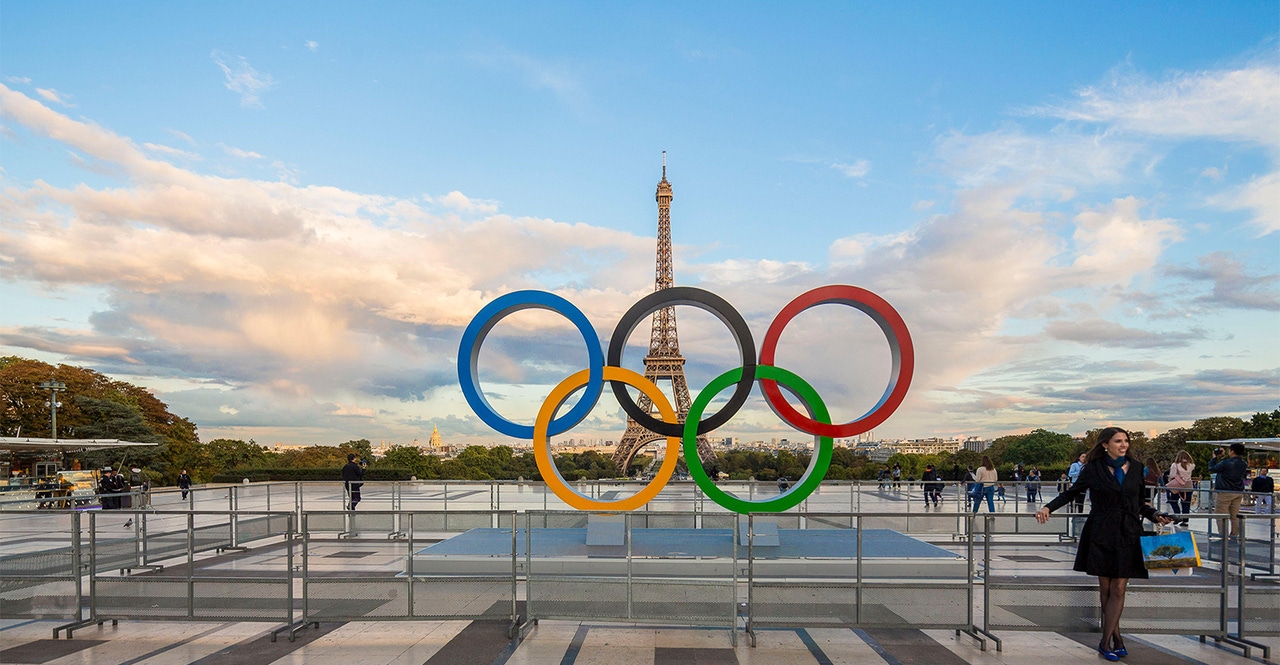Paris Aims High to Reduce Carbon Footprint for the 2024 Olympics
Olympic Games organizers have set bold sustainability goals for Paris 2024, beginning with halving plastic trash generated in recent past Games. The objective is part of a larger plan to cut the Games’ carbon footprint in half compared to London 2012 and Rio 2016.

Olympic Games organizers have set bold sustainability goals for Paris 2024, beginning with halving plastic trash generated in recent past Games. The objective is part of a larger plan to cut the Games’ carbon footprint in half compared to London 2012 and Rio 2016.. Hitting that target would require slashing carbon output from a roughly whopping 3.5 million tons to 1.58 million tons.
But the International Olympic Committee (IOC), working to align plans with the Paris Agreement, is aiming even higher for 2030. That’s when organizers of the iconic international sports festival will be charged with removing more carbon from the atmosphere than the events generate – a first for any international sporting event.
As the Paris 2024 Organizing Committee braces for the crowds, it’s looking closely at infrastructure, energy, transport, catering, and procurement, among target areas.
Plans include a move away from new construction. All venues will be pre-existing or temporary structures other than the Aquatics Centre, incorporating green features such as more wood to minimize carbon-emitting steel and concrete, a solar rooftop, heat recovery from a nearby datacenter and seating made from recycled plastics.
A grid connection will supply 100% renewable electricity from wind and solar, avoiding the equivalent of 13,000 tons of carbon emissions from the traditional diesel-powered systems.
The new clean grid connections will remain after the 2024 events wrap up, intended to live on as a part of the Games’ legacy, an IOC spokesperson wrote to Waste360.
Paris 2024 is prioritizing venues with easy access to public transport, and eventgoers wanting to bypass public transit will be able to pedal along a 260-mile network of cycle lanes, including an expansive stretch of new routes, dubbed as "Olympilanes.”
Reaching for a 50% reduction in single-use plastics is an Olympic first. Plans in the works are a revamped beverage distribution model and shored up packaging collections and recycling efforts.
“This decision will contribute to Paris 2024’s goal to organize a more responsible Games, reducing consumer-generated waste and providing participants with a different experience of a big sport event. We hope it will help set new standards for delivering more sustainable Olympic Games and sporting events more generally,” IOC wrote.
Coca-Cola will install 700 water and soda fountains across all venues to be redeployed for future use and will distribute reusable glass bottles. Non-plastic water bottles provided to Olympic and Paralympic family members will supplement these efforts.
Sodexo Live! and Re-Uz will work jointly to shrink the carbon footprint from the roughly 13 million meals and snacks to be served during the competitions. They’ll tamp down on catering waste and associated emissions (shooting for a more than twofold CO2 reduction per meal) by right-sizing portions, sourcing locally, and deploying returnable containers and reusable tableware. Plastic throwaways deemed unavoidable will be collected for recycling as will uneaten food.
“We take into account all the emissions linked to the Games, from the construction of the Olympic Village to the travel of spectators from their home countries to France, to the travel of employees to headquarters,” wrote Georgina Grenon, Environmental Excellence director at Paris 2024.
And now a carbon offset campaign has been developed to compensate for remaining emissions while supporting sustainability projects around the globe, she says.
Plans underway follow work from London 2012 and Rio 2016, beginning with the introduction of ISO 20121 in London, now an internationally recognized set of standards for sustainable event planning, touted as a precedent setter for future Games and other sporting events, worldwide.
Looking further ahead, in addition to aspiring to orchestrate carbon-negative events, IOC is vetting potential future sites with a warming planet in mind.
The committee established two commissions to study the current and potential future impact of climate change and to explore ideas such as rotating Games within a pool of “climate-reliable hosts.” Rains and temperatures too high for the snow to withstand have wiped out past Winter Games events.
The committee’s executive board’s investigations are ongoing; a host city for the 2030 Games scheduled for February of that year is yet to be identified.
Speaking of the next edition, less than a year away, Prince Albert II of Monaco, chair of the IOC’s sustainability and legacy commission, stated, “These will be Olympic Games of a new era.
“While there are currently no solutions to fully eliminate the carbon footprint of large events, Paris 2024 is showing how this can be reduced, setting a clear pathway on how to bring the world together, in a much more sustainable way.”
About the Author
You May Also Like




.png?width=300&auto=webp&quality=80&disable=upscale)